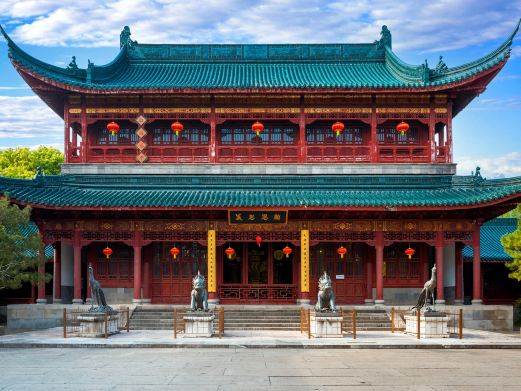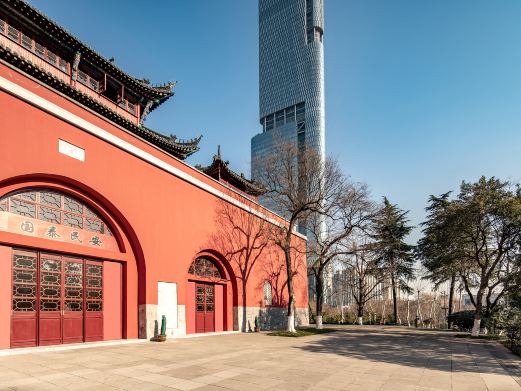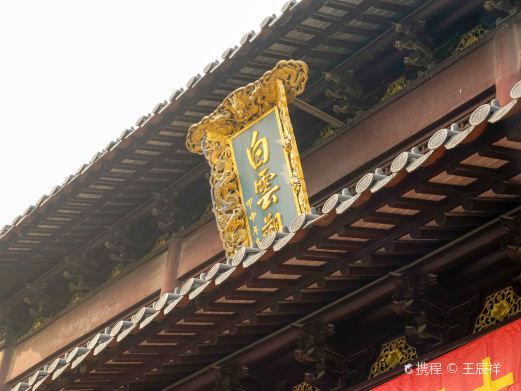Yuantong Zen Temple, located in Tonglu County, was first established in the 8th year of the Zhenguan era during the Tang Dynasty (634 AD). It is one of the earlier-built Guanyin temples in China. Although there are many Yuantong temples across the country, this one in Zhejiang Province is particularly noteworthy. It is a significant Buddhist site within the scenic area of the two rivers and one lake (Xin’an River, Fuchun River, and Thousand Islands Lake), and is often referred to as the Putuo of Western Zhejiang.
Despite being newly constructed, Yuantong Zen Temple is renowned for its grand scale and long history, attracting a continuous stream of worshippers who come to pray and pay homage to the Buddha. The renovated temple exhibits the graceful charm of the Jiangnan region, with towering Buddhist halls and verdant valleys.
Notably, the bluestone archway standing in the direction of the temple’s main entrance features layered eaves and a simple yet unique style; the eight Vajra statues guarding the entrance exude a majestic and imposing presence. What draws the most attention are the eight coiled dragon white jade pillars in front of the Yuantong Treasure Hall, exquisitely carved, creating an imposing and majestic aura as if reaching for the heavens; the Thousand-Armed Guanyin Buddha statue inside the Mahavira Hall is lifelike and solemnly sacred.
The temple is open all year round from 7:00 AM to 5:00 PM.
Yuantong Zen Temple
Yuantong Zen Temple, located in Tonglu County, was first established in the 8th year of the Zhenguan[...]









